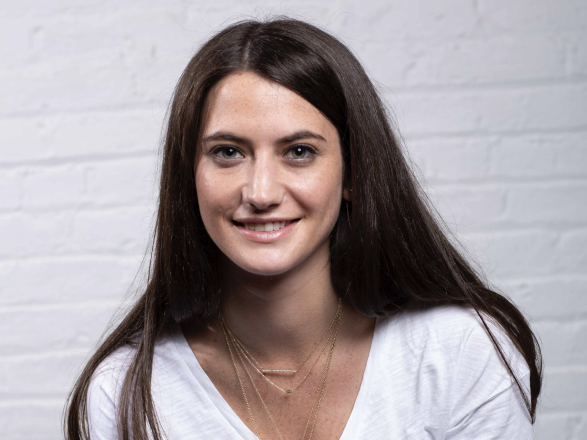- Alexis Taub worked at JPMorgan as an intern, analyst, and associate at the start of her career.
- She said demonstrating excitement, curiosity, and helpfulness helped her land a full-time offer.
- Her advice for aspiring applicants is to build your résumé years in advance and study the company.
This as-told-to essay is based on a conversation with Alexis Taub, a former JPMorgan employee from New York City. It's been edited for length and clarity.
I was hired two years in a row for summer internships at JPMorgan. The first internship was in securities, and the second was in prime brokerage as an account manager.
I was hired full-time as an analyst in prime brokerage in 2015 and was eventually promoted to associate. I stayed at the firm until 2018.
The application and interview process for the prime brokerage roles was comprehensive and there was a steep learning curve on how to assist clients. I mainly supported and learned from more senior team members until becoming an associate, where I was the main point of contact for my assigned customers.
Here's my advice on how to navigate the interview and get hired at JPMorgan.
The internship program is one of the best ways to get a full-time position at the firm
I decided I wanted to work in finance freshman year, and I set my sights on JPMorgan given its reputation as an industry leader with an amazing culture. Interning during my sophomore year allowed me to learn about the company, figure out the most compelling groups, and network throughout the summer.
The full-time analyst class is almost all people who were part of the internship program. It's difficult to get an analyst position without completing an internship.
I didn't have to interview for the full-time position. On the last day of the internship, everyone met with HR and was either presented with an offer letter or told they weren't offered a position.
Start building your résumé years in advance
Start as early as possible to build experience, participate in extracurriculars relevant to your desired position, and show your passions. I fundraised for breast cancer research, was a teaching assistant for a marketing and business analysis course, and was a peer mentor.
Extracurriculars should be something you're genuinely interested in and should show a story over multiple years. They're discussed in the interview, and a candidate's passion for these activities comes through — especially with follow-up questions.
Research the job position and the different groups
Researching the company is essential for positions right out of college. For JPMorgan's internship and analyst programs, you're usually placed in a large group with many different focus areas. You can have a particular interest in one, but be knowledgeable about all of them. I was drawn to prime brokerage because it's fast-paced and I wanted to be in a client-facing role.
I interviewed with the prime brokerage group and three other departments. If you're only familiar with one group, it will show up negatively to the other groups you talk to.
Everyone asked me the same question
The first question I was asked by all four of the people who interviewed me was tell me about yourself. You should be prepared with a solid answer because that will set the tone for the interview. Answers should be concise, show your passion for the position, and share a bit about yourself.
I rehearsed my answer over and over again. I showed my research on the department and positions within and shared background on my coursework and my previous internships, as well as the parts of the job that most interested me. You should mention anything that helps you stand out and shows you in a positive light, like accomplishments and grades.
In one interview, I was given a couple of brain puzzles, like how big is this room? The main objective of this question was to show how you approach a challenge, not if you know the correct answer. I counted the tiles on the ceiling and said, "Let's assume each one is one foot." While I knew they weren't one foot, I tried to choose a number that kept the math simple.
Once you land an internship, you go back for placement day
When you're granted a spot in the internship program, you go in again to find out who you'll be working with.
On placement day, each intern meets with more than 20 groups to learn about the specific roles within the larger investor services. It's then a matching game. The interns rank the groups they'd like to be in and the groups rank the interns. I got my top group during my second year, and then my analyst offer was to that group.
The best way to get a full-time job from the internship is to demonstrate 3 traits
If you want a full-time offer at the end, show your excitement for the position, be curious, and be as helpful as possible. I was constantly asking my team what I could help with.
I couldn't have had a better job to start my career. My JPMorgan teammates spent hours each day helping me with tasks most people wouldn't want to be bothered with — whether it was strategies for organizing my inbox or proofreading my emails. I also had an incredible manager who dedicated a substantial amount of time to teaching me the nuances of prime brokerage.
I was happy with the work-life balance
The typical day was 8 - 6, and most people would leave by 6. While it could be intense during the day with clients, I was not expected to work once I left for the day and was happy with my work-life balance.
I always wanted to start my own business, so with the manageable hours, I was able to start a DTC jewelry website, which eventually became the full-time job I have now.
There are endless career opportunities at JPMorgan. I recommend scouring the website beyond just the classic investment banking and sales and trading positions to find one that aligns with your skills and interests.


